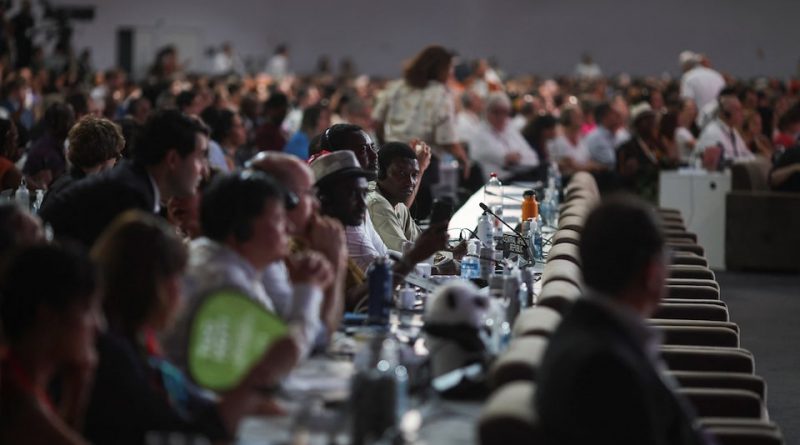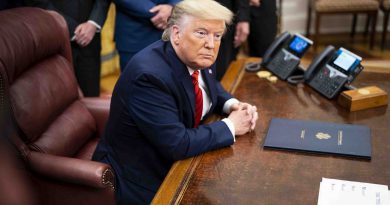Global Community Reaches Compromise Climate Deal at COP30, Leaving Fossil Fuels to a Side Text
A compromise agreement at COP30 boosts climate finance for developing nations but avoids explicit commitments on fossil fuels, reflecting both progress and ongoing global divides.
World governments reached a compromise climate agreement at COP30 in Belem, Brazil, aiming to expand financial support for developing nations while sidestepping direct language on fossil fuels. The deal was finalized following extended negotiations that went beyond the scheduled deadline.
Delegates emphasized that the agreement represents an effort to maintain international cooperation on climate action despite geopolitical tensions. This year’s conference proceeded without an official delegation from the United States, adding complexity to discussions.
The negotiations, which lasted two weeks in the Amazon region, revealed divisions among countries with differing economic priorities and energy strategies. COP30 President Andre Correa do Lago acknowledged the challenges but said participants worked to find common ground.
Some delegations had pushed for stronger commitments on transitioning away from coal, oil, and gas. However, resistance from a coalition of countries, including major energy producers, led to the removal of such language from the primary text.
The European Union initially held firm on including a reference to phasing out fossil fuels but later agreed to compromise. EU officials said the final agreement remained a step forward even if it did not meet their full expectations.
Other nations voiced disappointment over the omission, noting that avoiding direct mention of fossil fuels limits the clarity of international climate goals. Some negotiators argued that the outcome fell short of reflecting the urgency expressed by scientific assessments.
Despite differing viewpoints, the final deal includes a significant pledge to increase financial support for climate adaptation. Wealthy countries agreed to triple their funding for developing nations by 2035, focusing on resilience against rising temperatures and extreme weather.
Scientists have warned that current emissions-reduction commitments, while progress, are still insufficient to prevent global temperatures from surpassing 1.5 degrees Celsius. They emphasize that surpassing this threshold could increase the severity of floods, storms, droughts, and heat waves.
Developing nations reiterated that they are already facing the effects of climate change and require immediate financial assistance.
Rising sea levels, food insecurity, and infrastructure vulnerabilities remain major concerns across vulnerable regions.
Observers welcomed the focus on finance but said more rapid funding mechanisms are needed, especially for loss and damage. Climate experts stressed that developing nations cannot wait for slow-moving financial processes.
To address ongoing disagreements, conference organizers introduced a separate text addressing fossil fuels and forest protection.
These topics were left out of the main agreement due to the lack of consensus among participating countries.
The COP30 presidency encouraged continued dialogue on these unresolved issues ahead of the next climate summit. Officials emphasized that conversations on energy transition and environmental protection must continue even if they are not reflected in the final document.
The agreement also initiates a new process to examine how global trade policies can better align with climate goals.
This reflects growing concerns that rising trade barriers could hinder access to clean energy technology.
While the outcome represents incremental progress, it also highlights the persistent divide between nations seeking stronger climate mandates and those prioritizing existing economic structures. The compromise at COP30 underscores the challenge of balancing global cooperation with competing national interests.
The next phase of climate negotiations will take place under Brazil’s continued presidency, offering another opportunity to address unresolved issues. Global leaders hope upcoming discussions will help build momentum toward stronger commitments.



